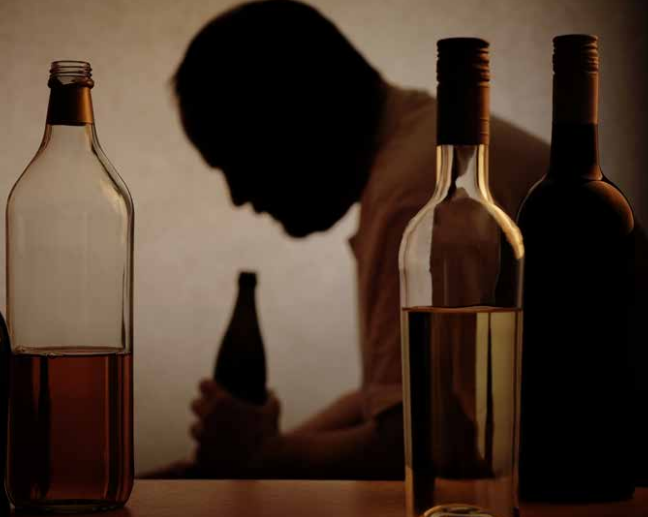To fight alcoholism, govt must not ignore the economy and illicit drinks

President William Ruto recently made a pronouncement that it was high time the country fought against alcoholism. The President’s statement was as a result of the increased rate of alcohol and drug abuse in Central Kenya which has been attributed to unregulated alcohol selling joints.
He called for cooperation between the national and county governments in confronting the problem of alcoholism. This will not be the first time that the President has raised an issue on alcoholism. Last year, during a meeting with newly-elected Kenya Kwanza leaders, he volunteered himself and the Deputy President to mentor some of the young leaders whom he cautioned against alcohol abuse as both leaders are known to be teetotalers. Some leaders claimed that they had to reduce their alcohol consumption so as to be close to the President.
Alcoholism is the addiction of alcohol that develops from a high dependency on alcohol that leads to destruction and loss of lives. Consumption of illicit alcohol is a major contributor to alcoholism since the drinks are unregulated and have a high percentage of alcohol content; they are also sold at a lower price compared to the regulated alcoholic beverages.
Deputy President Rigathi Gachagua, during the launch of the housing projects, blamed county governments for issuance of alcohol licences to too many bars and restaurants in the region. This is barely three months after the government ordered the reopening of 26 alcohol manufacturing companies in Central Kenya that had been shut down due to tax disputes under former President Kenyatta’s regime. The new administration ordered the reopening claiming that the shutdown caused the taxman a total loss of Ksh 1.8 billion revenue.
Contribution to the economy
The alcoholic beverage industry contributes 1.3% to the Kenyan GDP and 18% to the manufacturing sector with extensive value chain support. However, the government’s efforts in increasing revenue collected has continued to stifle growth of the industry. Last year, excise duty in beer and spirits was increased twice, in July and October. This notwithstanding, KRA published Excise Duty Regulations, 2023, that propose an increase in the cost of excise stamps on all excisable goods.
The increase is unjustifiable and an unexpected cost to the manufacturers. The excise stamps have failed to prevent counterfeit products as a result of counterfeited stamps which negates the main reason for introducing the excise stamps. The perennial increase in excise duty forces the manufacturers to pass down the additional costs to the consumers. A high cost of living makes the regulated alcoholic beverages unaffordable and out of reach for most consumers who turn to illicit alcohol and contraband alcohol from neighboring countries which further leads to loss of revenue for the government and increased cost of enforcement.
Policy Dissonance
In what can be termed as a policy dissonance, the Deputy President asked county governments in Central Kenya to revoke all issued licences and issue a liquor licence to one bar and restaurant in each town; whereas earlier in the year, he called out Nairobi Governor Johnson Sakaja for shutting down night club operations in Nairobi’s residential areas, pointing out that the decision was ill-informed. The declaration on issuance of a licence to one bar and restaurant by the Deputy President, if implemented, will have ripple issues. For instance, the reopened alcohol manufacturing companies will experience reduced volume in sale of alcohol which in effect will lead to reduced revenue for the government. Additionally, the licensed bar and restaurant could easily take advantage of the privilege and hike prices of alcohol which will push consumers to illicit and contraband alcohol negating the intended objectives.
Impact on the Night-Time Economy
Mr. Gachagua also declared that these bars should be opened from 5 p.m. to 11 p.m. This move is ill-informed as the growth of the night-time economy is premised on such businesses and others that mostly depend on revelers for example transport, accommodation and catering services. The night-time economy is an integral feature of developing sustainable urban cities and the engine of urban economic recovery. In addition, the night-time economy also contributes to economic growth, wealth creation and promotes the expansion of service industries. The Deputy President’s declaration, if implemented, will be inhibiting the economy’s growth and development.
Conclusion
It is therefore important for the national and county government’s to consider effects of some of their actions and efforts while fighting against alcoholism. Some of these actions might end up killing industries that are key in the implementation of the Bottom Up narrative such as the alcohol industry value chain addition and contribution to economic growth. The government should consider that an increase in taxes does not necessarily mean an increase in revenue due to decline in industry volumes. Further, the government should focus on building the night-time economy which supports economic growth of various service industries.

